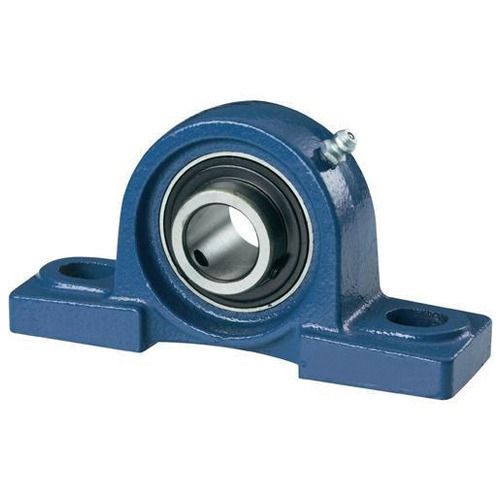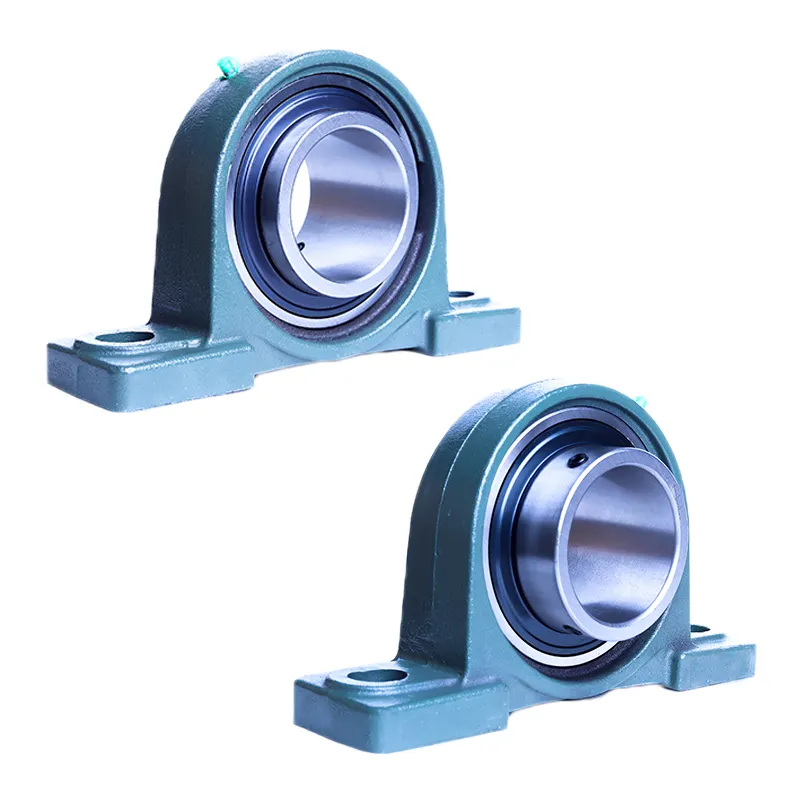
What is the typical price range for block bearings?
The price range for block bearings can vary depending on various factors such as the bearing type, size, materials, quality, and the supplier or manufacturer. Here’s a detailed explanation of the typical price range for block bearings:
1. Standard Block Bearings: Standard block bearings, commonly used in many industrial applications, are generally more affordable compared to specialized or high-performance variants. The price range for standard block bearings typically varies from a few dollars to several tens of dollars per bearing, depending on factors such as the bearing size, load capacity, and quality of construction.
2. Specialized Block Bearings: Specialized block bearings designed for specific applications or industries may have a higher price range due to their unique features, materials, or performance characteristics. For example, block bearings designed for high-speed applications, extreme temperatures, or corrosive environments may fall into a higher price range. Prices for specialized block bearings can range from tens of dollars to several hundred dollars per bearing, depending on the specific requirements and performance specifications.
3. High-Precision or Custom Block Bearings: High-precision block bearings or custom-designed bearings, which are manufactured to very tight tolerances or tailored to specific machinery requirements, can have a higher price range. These bearings often involve additional engineering, manufacturing, or quality control processes, which contribute to their higher cost. The price range for high-precision or custom block bearings can vary significantly, ranging from hundreds of dollars to several thousand dollars per bearing.
It’s important to note that the prices mentioned above are general estimates and can vary based on factors such as geographical location, market demand, quantity ordered, and supplier-specific pricing policies. Additionally, prices may also be subject to fluctuations over time due to factors such as raw material costs, manufacturing expenses, and market conditions.
When considering the price of block bearings, it’s essential to balance cost with quality and performance requirements. Opting for reputable suppliers or manufacturers known for their reliability and product quality is advisable to ensure that the block bearings meet the desired specifications and provide long-term value.

Are block bearings available in stainless steel?
Yes, block bearings are available in stainless steel variants to meet specific application requirements. Stainless steel block bearings are designed to provide corrosion resistance and durability in environments where standard bearings may be susceptible to corrosion or chemical attack. Here are some key points about stainless steel block bearings:
1. Stainless Steel Material: Stainless steel block bearings are typically made from high-quality stainless steel materials, such as AISI 304 or AISI 316. These materials offer excellent corrosion resistance, mechanical strength, and dimensional stability.
2. Corrosion Resistance: Stainless steel block bearings are specifically designed to withstand corrosive environments, including exposure to moisture, chemicals, or harsh substances. They are commonly used in industries such as food processing, pharmaceuticals, chemical processing, marine applications, and outdoor equipment.
3. Lubrication: Stainless steel block bearings may require special lubrication considerations to ensure optimal performance and longevity. Some lubricants used with stainless steel bearings are specifically formulated to be compatible with stainless steel and provide enhanced corrosion protection.
4. Bearing Types: Stainless steel block bearings are available in various bearing types, such as deep groove ball bearings, spherical roller bearings, or tapered roller bearings. The specific bearing type depends on the application requirements, load capacity, and operating conditions.
5. Design Options: Stainless steel block bearings are available in different designs and configurations, including standard duty, heavy-duty, self-aligning, or flange block designs. The selection of the design depends on the specific application needs and load requirements.
6. Temperature Limitations: It’s important to consider the temperature limitations of stainless steel block bearings. While stainless steel offers good resistance to corrosion, the operating temperature range may be lower compared to other bearing materials. It is essential to consult the manufacturer’s specifications to ensure that the stainless steel block bearing is suitable for the intended temperature conditions.
7. Application Considerations: When selecting stainless steel block bearings, it’s crucial to consider the specific application requirements, load conditions, environmental factors, and operating conditions. Stainless steel block bearings may have different load capacities or temperature limits compared to their non-stainless steel counterparts.
Stainless steel block bearings provide a reliable solution for applications that demand corrosion resistance and durability. They offer protection against rust, pitting, and other forms of corrosion, making them suitable for use in challenging environments. However, it’s important to note that stainless steel block bearings may have different cost considerations compared to standard bearings due to the higher material and manufacturing costs associated with stainless steel.
Consulting with bearing manufacturers or suppliers can help in selecting the appropriate stainless steel block bearing that meets the specific requirements of the application and ensures reliable performance in corrosive or demanding environments.

What are the standard dimensions for block bearings?
The dimensions of block bearings, also known as pillow block bearings, can vary depending on the specific design and manufacturer. However, there are standard dimensions that are commonly used in the industry. Here’s a detailed explanation of the standard dimensions for block bearings:
Block bearings consist of a bearing insert (also called an inner ring) and a housing (also called an outer ring or pillow block). The housing is typically a solid or split housing with mounting holes for attachment to a support structure. The bearing insert is designed to fit inside the housing and supports the rotating shaft. The dimensions of block bearings are typically specified using the following parameters:
- Shaft Diameter (d): This refers to the diameter of the shaft that will be inserted into the bearing. The standard shaft diameters for block bearings range from a few millimeters up to several inches, depending on the application requirements. Common shaft diameter sizes include 1/2″, 5/8″, 3/4″, 1″, 1-1/4″, 1-1/2″, and 2″.
- Housing Length (L): The housing length refers to the distance between the mounting surfaces of the housing. It determines the overall length of the block bearing assembly. The housing length can vary depending on the bearing size and design, but common lengths range from around 2 inches to several inches or more.
- Housing Width (B): The housing width refers to the width of the housing, perpendicular to the shaft. It determines the overall width of the block bearing assembly. The housing width can vary depending on the bearing size and design, but common widths range from around 1 inch to several inches or more.
- Mounting Hole Spacing (Bolt Hole Centers): Block bearings typically have multiple mounting holes for attachment to the support structure. The mounting hole spacing refers to the distance between the centers of these mounting holes. The standard mounting hole spacing is often specified using a bolt hole center-to-center distance, such as 2-bolt, 3-bolt, or 4-bolt configurations. The specific dimensions can vary depending on the bearing size and design.
- Bearing Insert Width (Bearing Width): The bearing insert width refers to the width of the bearing insert itself. It determines the amount of support and contact area for the rotating shaft. The bearing insert width can vary depending on the bearing size and design, but common widths range from around 0.5 inch to several inches or more.
It’s important to note that these are general standard dimensions, and variations may exist depending on the specific manufacturer and bearing type. Additionally, some block bearings may have additional features or variations in dimensions to cater to specific applications or industry requirements.
When selecting a block bearing, it’s crucial to consider the specific dimensions required for your application, including the shaft diameter, housing length and width, and mounting hole spacing. Consulting the manufacturer’s specifications and guidelines is recommended to ensure the correct dimensions are chosen for your specific needs.


editor by CX 2024-04-30